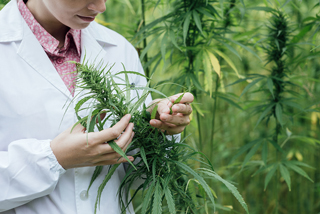25 Good Jobs That Don't Drug Test (Or Are Less Likely To)
Is it possible to find good jobs that don't drug test? If you're asking this question, you're far from alone.
These days, many people are wondering the same thing. And they each have their own reasons for wanting to know. It's an issue that strikes a real chord among all kinds of people who simply want the opportunity to build a better future for themselves, their families, and their communities.
The answer is yes; there are many appealing jobs with no drug test requirements. But you'll maximize your chances of attaining the type of success you want if you take the time to truly understand America's drug-testing landscape.
Note: None of the following information should be construed as legal advice. If you have questions about your own particular situation, then you should contact a labor attorney.
In this article:
- 25 Good Jobs That Are Less Likely to Drug Test
- Why Do Some Employers Require Drug Tests?
- Why Do Other Employers Choose Not to Drug Test?
- Recreational and Medical Marijuana Testing: The Reality
- What About Privacy and Discrimination?
- The Bottom Line
- Companies That Don't Drug Test
- Companies That Drug Test
- How to Find Training for the Vocation You're After
25 Good Jobs That Are Less Likely to Drug Test
 Lots of jobs don't require any drug tests. But you have to know about the occupational areas in which you'll have the greatest chances of finding them. For instance, many people have success finding non-drug-testing jobs in the culinary, creative, and entertainment sectors. And, of course, many vocations that allow you to be self-employed or work from home may also be good options.
Lots of jobs don't require any drug tests. But you have to know about the occupational areas in which you'll have the greatest chances of finding them. For instance, many people have success finding non-drug-testing jobs in the culinary, creative, and entertainment sectors. And, of course, many vocations that allow you to be self-employed or work from home may also be good options.
It also helps to know which areas you may want to avoid. In general, jobs with the highest likelihood of required drug screening tend to be in areas that come with a moderate-to-high risk of injury, involve potential legal liabilities, are within the government, or involve keeping people safe from harm.
In the end, it's impossible to say that any particular career area will be completely free of drug testing. But here are some of the best ideas for specific vocations that tend to provide the most opportunities for avoiding drug tests:
1. Chef
Expertly preparing great meals takes a lot of skill and creativity, but it doesn't usually require peeing in a cup. Relatively few restaurants can spare the expense or impact on morale of testing staff for drugs or alcohol.
2. Restaurant Manager
Overseeing food, beverage, and hospitality operations is a role packed with variety. And it requires providing customers with outstanding service and dining experiences within a restaurant's well-planned budget, which usually doesn't leave much room for costly drug screening.
3. Accountant or Bookkeeper
Although a lot of companies test all employees or potential new hires for drugs, working in an accounting-related occupation can allow you to be your own boss and avoid such requirements. With your own business, you can choose your clients and contract out your services on your own terms.
4. Information Technology (IT) Consultant
Nearly all organizations today rely on computer systems. But sometimes they don't have the right in-house staff to solve certain technology problems or provide advice about new projects. Self-employed IT consultants usually get to help a variety of different clients without ever having to provide urine samples to do so.
5. Audio Recording Engineer
Music studios are often fun work environments, especially since they attract a diversity of talented artists and producers. Plus, many employers that offer music industry jobs care much more about your reliability and creative and technical skills than they do about what you choose to do during your off time. And it's also possible to freelance in this vocation or even run your own studio or mobile recording service.
6. Event Planner or Wedding Consultant
Your creativity, organization, and attention to detail are what truly matter in this occupational area. What you do on your own time is usually of no concern, especially as a self-employed event specialist. What counts is helping your clients throw memorable and satisfying special events that go as smoothly as possible.
7. Computer Programmer
Many companies that have drug-screening policies don't apply them to all departments. Oftentimes, IT staff members, such as programmers, are exempt from such policies since their jobs don't involve putting anyone at risk of injury. But a lot of programmers also freelance their services on a client-by-client basis, so they can choose opportunities that don't have any testing requirements.
8. Mobile Applications Developer
This type of specialized programmer is in high demand across several different industries. As a result, many organizations choose to exempt mobile app developers and similar tech pros from drug-test policies in order to make it easier to attract potential talent. A lot of app developers also work from home on a freelance basis. Plus, this occupation was named the best job in America by CNN Money.
9. Web Designer or Developer
Attaining the skills to build professional websites is another way to give yourself an opportunity to work in the in-demand tech sector without being subject to drug testing. Like many other tech pros, web developers and designers often choose to stay self-employed or remain very selective about the employers they work for.
10. Graphic Designer or Illustrator
It's fairly rare for companies to require drug screening of creative professionals like designers. They tend to care a lot more about talent and your ability to collaborate and meet deadlines. Plus, graphic design and illustration are services that you can build your own business from.
11. Video Game Designer
Most companies that develop video games offer fun and progressive workplaces. And few of them test employees or job applicants for drugs. Instead, they often strive to build creative teams of designers and other professionals who are willing to experiment, share ideas, and cooperate with each other. And that requires a strong atmosphere of trust.
12. Computer Animator or Visual Effects Artist
Like video game designers, professionals in the field of 2D or 3D animation and special effects usually aren't asked to take any drug tests. The studios they work in often prefer to maintain a spirit of openness and collaboration.
13. Film Producer
Making entertaining or informative movies or videos takes creativity, planning, organization, cooperation, and commitment. But, in most cases, it doesn't involve having to provide samples for urine or hair follicle testing.
14. Fashion Designer
You're unlikely to encounter much drug testing in the fashion design field. Whether you work for yourself or as part of a studio that designs clothes or accessories, the main focus is generally on creating new, distinctive, and marketable looks in time for industry fashion shows, client meetings, or other opportunities.
15. Interior Designer
Creating new looks for interior spaces can be highly enjoyable. It's something you can do as a freelancer. And relatively few design studios ask their staff or potential employees to submit to drug screening.
16. Photographer
Most photographers are freelancers. They work for themselves and choose the clients and projects they wish to work on. But even among those who are employed as staff photographers, few are ever required to undergo substance testing.
17. Cosmetologist
Hairstylists, nail technicians, and other beauty professionals work in a field where drug tests are pretty uncommon. After all, self-employment in this service trade is very prevalent. And although some salons and other employers in the industry do have screening policies, it's fairly easy to find ones that don't.
18. Skin Care Specialist
Many spas and skin care clinics provide opportunities to qualified estheticians without requiring drug testing. And this part of the beauty sector also offers the chance to build your own clientele without being employed by someone else.
19. Makeup Artist
Whether for purposes of entertainment or personal beauty, makeup artists get to have fun transforming the way other people look. And like in other creative vocations, your chances of encountering employment drug screening are relatively small compared to other career areas.
20. Dog Trainer
Dogs are extremely popular pets, but their behavior can sometimes be disruptive or dangerous. So companion animal instructors play important roles in training dogs and their owners about positive behaviors such as obedience. And they don't typically have to worry about drug tests since they tend to be self-employed.
21. Personal Fitness Trainer
It's very common to be your own boss in this active occupation. Plus, some gyms and fitness clubs don't have drug-testing policies, so you may be able to find steady work in a place you enjoy without being concerned about undergoing screening.
22. Floral Designer
Can you picture being able to arrange colorful bouquets and other floral displays every day? It's a fun vocation that brings good cheer to people. And many jobs in this field come without employer-mandated substance testing, especially those offered by independently owned flower shops.
23. Journalist
Some big media companies do test current or prospective employees for drugs. However, a lot of journalism jobs can still be attained at media organizations that have abandoned their screening policies or never had them to begin with.
24. Real Estate Agent
Most real estate agents work as independent contractors, not as employees. So they are rarely, if ever, subjected to drug testing by the agencies they are associated with. But it's still a good idea to double-check with your state to make sure that such screening isn't part of the licensing process.
25. Writer
There are many kinds of writers: copywriters, technical writers, screenwriters, non-fiction and creative-fiction authors, and plenty more. And since some of them are employed by organizations as staff writers, drug testing may be a reality for a few of them. But the majority of writers are self-employed and don't have to undergo any screening.
Why Do Some Employers Require Drug Tests?
Most employers in the U.S. are not legally obligated to test potential or current employees for drug use. However, according to a Bureau of Labor Statistics (BLS) 2021 survey, about 16 percent of employers performed drug or alcohol screening.
Some jobs require a drug test because employers are concerned about maintaining worker productivity and avoiding potential legal liabilities for injuries caused by workers who may be intoxicated on the job. Of course, those aren't the only reasons.
Some employers—especially within safety-sensitive industries like healthcare, defense, law enforcement, and transportation—are required by federal law to administer alcohol and drug testing. In some states, employers can also receive discounts on their premiums for workers' compensation insurance if they test for drugs. And in some industries, such as competitive sports, education, and medical care, employers conduct testing, in part, to help maintain positive public perception of their organizations.
In certain states—such as Texas—many hospitals even screen job applicants for nicotine since they believe that healthcare employees who don't smoke, vape, or chew tobacco make better role models for the industry. (In contrast, a slight majority of states consider smokers and other nicotine users part of a protected legal class that isn't subject to that type of screening.)
And in states like Colorado where marijuana use is legal, some companies have enacted new or stricter testing policies. They fear that the state-legalized marijuana industry, despite being heavily regulated, could start infiltrating their workplaces.
Also, keep in mind that public service jobs are more likely to involve pre-employment drug screening than those in the private sector. That's because a majority of federal, state, and local government agencies are designated as drug-free workplaces. However, not all government jobs require a drug test. Generally speaking, all "safety-sensitive" positions will require drug screening. But the requirements for other kinds of jobs vary from agency to agency. You can usually find out whether a particular job opportunity requires testing by carefully reading through the full job announcement for it.
Why Do Other Employers Choose Not to Drug Test?
A lot of employers have decided that, for them, drug testing comes with too many disadvantages. They've weighed the potential upsides and downsides and determined that it isn't worth it—for a variety of reasons.
For example, the number of people who test positive during employment drug screening tends to be relatively low. In 2020, only 4.4 percent of urine tests came back positive in the U.S. Yet, it can be very expensive for organizations to administer screening programs since they generally must hire outside testing companies and have enough of their own human resources staff to help manage them. And even the most well-managed testing programs sometimes produce false results.
Plus, failing a drug test for a job doesn't necessarily mean that a person has ever been intoxicated while working. In fact, a lot of companies have stopped testing for that very reason. They simply haven't seen any significant rises in productivity or decreases in worksite accidents. After all, most employment drug testing is not designed to measure intoxication while an employee is actually on the job. So it often provides no real proof that a person is ever impaired at work. It can show that a person may have consumed a substance, but not necessarily when that substance was consumed.
Also, some organizations have concerns about employee privacy and workplace morale. They recognize that employees may put in more effort and stay more loyal in an environment built on trust rather than on suspicion.
Recreational and Medical Marijuana Testing: The Reality
Legalization is constantly evolving depending on where you live. Most states have broadly legalized the use of marijuana (also known as cannabis) for medical purposes. And many others have made it legal to use cannabis recreationally. Reflecting this shift, some post-secondary institutions now offer cannabis studies programs that cover various topics such as marijuana dispensary and retail operations, cannabis horticulture, cannabis processing, and cannabis compliance and law.
But even though it may be legal where you live (at the state level), employers can still screen you for using recreational or medical marijuana. Drug test policies in many organizations pay little or no attention to state marijuana laws. And compared to many other popular substances, cannabis can remain detectable in your urine for a long time.
According to the National Center on Substance Abuse and Child Welfare / Substance Abuse and Mental Health Services Administration, drug detection times are significantly higher for cannabis. For example, cocaine may only be detectable in urine for up to three days, and MDMA is not detected by typical drug testing. Methamphetamine may be detectable in a urine test for up to five days. Yet, marijuana can be detected in some people's urine for up to one month after the last use. Detection times can run even longer for tests conducted on hair follicle samples.
So, although there is obviously a difference between using cannabis during your off time and using it at work, a drug test could still pose trouble for your employment. Plus, marijuana is currently classified as an illegal Schedule I drug under the federal Controlled Substances Act. As a result, most employers feel that they have sufficient grounds for firing or refusing to hire people who test positive for cannabis—regardless of whatever state laws are in place.
A number of court rulings are backing that up. For instance, in one Colorado case, a judge cited federal law in determining that an employer was within its rights to fire an employee who tested positive for cannabis even though the employee held a valid medical marijuana card from that state.
In an effort to try and protect such people, some states have passed laws that prohibit the firing of employees who fail drug screenings but have been prescribed marijuana to treat their disabilities or medical conditions. However, federal law still overrules state law on this matter.
So until cannabis becomes legal for medical or recreational use at the federal level, employers can challenge state laws—and win. It's why, with few exceptions, American companies with drug-testing programs are not providing any accommodation to employees who use marijuana, even for those with valid prescriptions for it.
What About Privacy and Discrimination?
 Here's a startling statistic: According to the HIPAA Journal, more than 127 million health records were exposed or stolen through data breaches in 2023 between business associates and healthcare providers.
Here's a startling statistic: According to the HIPAA Journal, more than 127 million health records were exposed or stolen through data breaches in 2023 between business associates and healthcare providers.
How can that be? Simply put, whether due to employee carelessness or criminal activities, not all organizations play by the rules all of the time. And some of the rules don't provide enough privacy protection, especially in an age of electronic health records that can be hacked, sold, stolen, or shared illegally. Plus, many complaints about potential privacy violations are never fully investigated.
The Health Insurance Portability and Accountability Act (HIPAA) of 1996 was supposed to give Americans some control over how their personal health information was used or disclosed to other parties. But as a result of new regulatory permissions that came into effect in 2003, self-insured employers now have the authority to get a lot of information related to an employee's health care for any "routine use" such as administrative transactions. (This authority generally applies to large employers who fund their own group health plans as opposed to sponsoring plans from outside insurance companies.)
Still, most other employers shouldn't be able to lawfully access any of your personal health records without your written consent. So if you've been prescribed a medication that you don't want your employer to know about, then chances are good that it will remain private—unless, potentially, your job is with a self-insured employer or your records are leaked through a data breach. That's why it's a good idea to double-check with your organization's human resources department to see how your employee benefits are funded and to read over any privacy notices or agreements that you may have already signed.
When it comes to drug testing, employers have to follow the requirements of their state. But different states have different requirements. For instance, some states disallow random drug screening of employees, whereas others do not. However, all employers—in all states—must handle job-related matters in accordance with the federal Americans with Disabilities Act (ADA), which makes it illegal to discriminate against potential or existing employees on the basis of real or perceived disabilities.
So, what exactly are your rights as an employee or job applicant? According to the U.S. Equal Employment Opportunity Commission, you should know that:
- Before a job offer is made, an employer cannot ask about your medical condition, disabilities, or prescription drugs you are taking.
- Once you have a conditional job offer or are hired on as an employee, an employer may be able to ask you to undergo drug and/or medical screening. But the employer is still not allowed to ask you about prescription medications or anything else that might reveal a disability.
- You may be required by law to notify an employer about prescription drugs you're taking if they could negatively impact your ability to work or potentially cause you to put other people in danger while on the job.
Here's something else to think about: As a job candidate, you are allowed to refuse a drug test. That's your right. However, an employer also has a right not to hire you on the basis of your refusal. So if you want the job, you don't really have a choice. You either have to agree to drug screening or drop out of consideration for the job. You could try challenging the employer's policy in court, but it's very unlikely you would win that kind of legal battle.
The Bottom Line
Drug-screening policies vary from employer to employer. So, while there are many jobs that require drug testing, there are also many that don't drug test. And you do have some rights. But, in most cases, if you refuse to submit to a drug test, then an employer does not have to follow through on a job offer. And you might not have much legal recourse if you refuse a drug test and get fired because of it—unless you can prove that the employer discriminated against you or treated you differently from others in your workplace in the same type of position.
Also, based on how courts have been ruling, you might not be protected if you fail a drug test for a job while having a valid prescription for the substance at fault. For federally controlled substances like marijuana, an employer may have grounds to fire you or rescind an offer—even if that substance was obtained and used within the bounds of your state's laws. However, for other prescribed substances that are legal at the federal level, an employer may have a much more difficult case since disability discrimination laws must be followed.
Just remember: If you're wondering about your own particular circumstances, then you should contact an attorney in your state who specializes in this area of labor law.
Want to know how to find out if a job drug tests? Start by checking out the employer's website. It might include a statement along the lines of being proud to be a drug-free workplace. If so, then chances are good that the organization has a drug-screening policy. Otherwise, you may be able to get the answer by calling the employer anonymously and asking whether drug testing is part of the organization's hiring process for the type of job you wish to pursue. It would be in an employer's best interest to give you an accurate answer in order to help avoid any unnecessary effort or expenses.
Companies That Don't Drug Test
Finding a comprehensive list of employers that don't do any drug screening might be impossible. After all, most companies that don't drug test prefer to stay quiet about it. They don't want to attract too much unwanted attention or controversy. Some of them, even when asked directly about the issue, will simply reply with, "No comment."
That said, a few major companies—especially some that are part of the technology sector—are suspected of not having any drug-testing requirements. Job seekers have gleaned some fairly reliable information by word of mouth. Their best sources have usually been current or former employees of those companies.
But it's important to remember that the drug-screening policy of any given employer is always subject to change. And word of mouth is sometimes wrong. So you always have to be prepared for the possibility that any company on a list of employers that don't drug test might, in fact, have some kind of drug-screening requirement for potential or existing employees.
With all of that in mind, here are a few large companies that have been mentioned by current or former employees as being places where drug testing is uncommon, doesn't exist, or is only done for those who drive or operate heavy machinery:
- Amazon
- Apple
- Microsoft
- Yahoo
- Qualcomm
- Starbucks
- Gap
- Whole Foods Market
- Chipotle Mexican Grill
Of course, many other employers don't drug test. Small businesses, especially, are less likely to have drug-screening policies. And in states that have legalized marijuana, most companies within that particular industry do not drug test.
Companies That Drug Test
Without asking companies directly about their drug-testing policies, it can be difficult to know for sure whether they conduct any pre- or post-employment screening. Many companies that drug test simply don't advertise it. In fact, even the Institute for a Drug-Free Workplace (a much-touted non-profit coalition of employers that drug test) doesn't publish a public list of its many corporate members. So job seekers are often left in the dark until they apply for open positions or make it past the interview stage.
That's why it is usually best to assume that any potential employer will do some kind of drug screening. Certainly, some employers don't drug test. But in today's employment landscape, you're probably better off assuming that most companies do—particularly large or mid-sized ones.
When it comes to staffing agencies, the situation is much the same. Not all employment agencies drug test, but most of them tend to require drug screening at some point in the hiring process. Some agencies screen every candidate for drugs, whereas others only screen those candidates who've been matched with jobs in which the employer requires testing.
You're especially likely to encounter drug testing for any position that involves driving, operating heavy machinery, working with cash, or performing any type of work that can be deemed dangerous. Many retailers, utility companies, warehouse facilities, factories, and casinos also drug test. The same is true for just about all government agencies and private contractors that do business with the government.
A truly definitive or comprehensive list of all companies that drug test is not publicly available. However, many job seekers have reported that the following companies require drug screening for at least some positions. (Keep in mind that this partial list may or may not be completely accurate at the time you view it. Many companies revise their policies from time to time.) Examples of major companies that have been known to drug test include:
- 3M
- 7-Eleven
- Alaska Airlines
- American Express
- Anheuser-Busch
- AT&T
- Best Buy
- Boeing
- Caterpillar
- CenturyLink
- Chevron
- Coca-Cola
- Comcast
- ConAgra Foods
- Costco
- CVS Pharmacy
- Delta Airlines
- Dow Chemical Company
- DuPont
- ExxonMobil
- FedEx
- General Electric (GE)
- Georgia-Pacific
- Goodyear Tire and Rubber Company
- The Hershey Company
- Hewlett-Packard (HP)
- The Home Depot
- Honeywell
- IBM
- John Deere
- Kaiser Permanente
- Lockheed Martin
- Lowe's
- Molson Coors
- Pep Boys
- PepsiCo
- Pfizer
- Raytheon
- Safeway
- Sears
- Staples
- T-Mobile
- United Airlines
- United Parcel Service (UPS)
- Wal-Mart
- Waste Management
- Weyerhaeuser
- Xerox
How to Find Training for the Vocation You're After
Getting a career-focused education can increase your chances of landing satisfying jobs that don't drug test. Plus, nearby and online programs are simple to find. So conduct a quick search for schools using your zip code right now!









